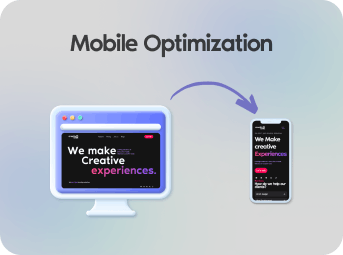Your website is basically your digital storefront— only it’s open 24/7, to the entire world. And just as you might lock the doors and turn on the burglar alarm for your physical store, its crucial that you worry about the digital security of your digital store as well!

website security
When your website is secure, customers feel safe doing business with you. They’re more likely to enter their credit card details, sign up for your newsletter, or even just browse around without worrying. On the flip side, a security breach can be disastrous—losing customer data, getting blacklisted by search engines, or even having your site taken offline. You see, your website security isn’t just about keeping out the bad guys; it’s about protecting everything you’ve worked so hard to build—your reputation, your customers’ trust, and of course, your bottom line.
And here’s the good news: website security doesn’t have to be scary or complicated! By taking a few key steps—like using strong passwords, installing an SSL certificate, and keeping your software up to date—you can build a solid defence that keeps your site safe and sound. And today we’ll be going through some of the most important things you need to be aware of. So let’s dive right in.
1. Start with Secure Hosting
Think of your hosting provider like the landlord of a building where you’re renting space. You want a landlord who keeps the place secure, right? A good hosting provider does just that for your website, offering features like firewalls, backups, and protection against attacks. When shopping for hosting, look for plans that mention security features upfront, like SSL certificates and daily backups. It’s definitely worth spending a little extra for peace of mind.
2. Use a Secure Content Management System (CMS)

Use a Secure Content Management System
We’ve spoken about CMS’s before, and it can be a great way to get your website up and running with minimum hassle. Your CMS is like the engine under the hood of your website. A strong, reliable engine will keep everything running smoothly and securely. Popular platforms like WordPress, Shopify, or Wix are not only user-friendly but also regularly updated to patch any security holes. Stick to well-known CMS platforms with a good reputation. After all, they are well known for a reason. And if you choose to hire developers to build a custom website for you, make sure you go for professionals who have experience in building secure, fool-proof websites, and be sure to make website security a point of discussion when you communicate with them. They will know exactly what security measures you’ll need for your website.
3. Install an SSL Certificate
Okay first off, what is SSL? Great question! SSL stands for Secure Sockets Layer—but don't let the technical name scare you off. In simple terms, SSL is like a protective shield that keeps the data exchanged between your website and your visitors safe from prying eyes. SSL does this by encrypting the data exchanged between a website and the browser. You know that little padlock icon next to a website’s URL? That’s what an SSL certificate gets you. It tells visitors, “Hey, this site is safe!” It’s crucial if you’re handling sensitive information like customer details. In a nutshell, SSL builds trust. It shows your customers that you’re serious about their security, and it’s essential if your website handles sensitive information. Plus, search engines like Google actually favour sites with SSL, which can help you rank higher in search results. So, it’s not just about safety—it’s also good for business! So make sure your hosting plan includes a SSL certificate, or you can buy one separately. It’s a small investment that makes your site look professional and secure.

Install an SSL Certificate
4. Choose Secure Themes and Plugins
Themes and plugins are small pieces of software that integrate with your website to add design elements or functionalities. However, if they’re poorly coded or not regularly updated, they can have security vulnerabilities. It’s like having a faulty lock on your door—one weak point can compromise the entire site.
The more themes and plugins you have, the more moving parts there are to keep track of, and the greater the risk of something going wrong. While it’s tempting to load up your site with all sorts of cool features, each plugin is another potential entry point for security threats. Keep it simple—only use what you really need, and avoid duplicating functions with multiple plugins. Only download themes and plugins from reputable sources, and keep them updated. If you’re ever unsure, it’s better to stick with the basics than risk your site’s security.
5. Limit User Access
The more the merrier—but not when it comes to admin access! Not everyone on your team needs full access to your website. Every person who has access to your website is a potential point of entry. Whether it’s for making changes, adding content, or managing customers, the more people with high-level access, the higher the risk of accidental mistakes or, in some cases, intentional misuse.
By limiting who can do what on your site, you reduce the chance of something going wrong, either through error or malicious intent. Limiting user access is all about giving the right people the right amount of control—and no more.

Limit User Access
You can do this by defining user-roles for your website. Different user-roles have different levels of access. For example, administrators have full control over the site, while editors might only be able to add or modify content, and contributors can draft content but not publish it. By assigning the right roles, you ensure that users only have the permissions they need to do their job. This minimizes the risk of accidental changes that could impact your site’s functionality or security. Most content management systems (CMS) like WordPress, Shopify, or Wix have built-in roles that you can assign based on each role’s responsibilities. Or if you’re hiring professionals to create your site, you can talk to them about the different roles and permissions you require.
Once you have your user-roles in place, make sure to audit user access regularly. Over time, people might leave your company or move to different roles where they no longer need the same access. Regular audits help you catch any outdated permissions and tighten security.
6. Use Strong Passwords and Two-Factor Authentication
It’s 2024, so I’m sure you know that “password123” or your birthday are NOT secure password options. But you’ll be surprised at how many people still use those. So here’s your reminder to use strong passwords for your website. Ideally, your password should be at least 12 characters and should include a combination of uppercase and lowercase letters, numbers, and special characters (like !, @, #). Bonus points if you change your passwords every few months. Also, never reuse passwords across different accounts. That way if one account gets compromised, others will stay safe.

Use Strong Passwords and Two-Factor Authentication
Two-factor authentication (2FA) adds a second layer of security on top of your password. Even if someone manages to get your password, they still can’t get into your account without the second factor—usually a code sent to your phone or generated by an app. It’s like adding a second lock to your door, one that only you can open. It might seem like a hassle at first, but it’s one of the most effective ways to secure your website. Hackers are looking for easy targets, and 2FA makes your site a lot harder to break into.
Make sure educate your team so that everyone with access to your website understands the importance of strong passwords and 2FA. It’s a simple way to boost security across the board.
7. Backup Your Website Regularly
Backups are essentially your website’s insurance policy. If something goes wrong—whether it’s a hack or a simple mistake—you want to be able to restore your site quickly without losing everything. Without a backup, you could lose everything—your content, your customer information, and your hard-earned SEO rankings. Rebuilding from scratch would not only be time-consuming but also expensive and frustrating. But with regular backups, you have a safety net that keeps your business protected.

Backup Your Website Regularly
Most hosting providers and website platforms offer automatic backups as part of their service. These are set to run on a regular schedule—daily, weekly, or monthly—without you having to lift a finger. Automatic backups are convenient because they’re easy to set up and you don’t have to remember to do them. You may also perform manual backups whenever you make significant changes to your site. This gives you an extra layer of control, ensuring you have a backup at critical moments, like before updating your software or adding new features.
These backups could be on the cloud or on physical devices, but we recommend keeping backups in multiple locations—such as an external hard drive and a cloud service. This way, if one storage method fails, you have a fallback option.
Pro tip: Test your backups— a backup is only useful if it works. Testing your backups regularly ensures that you can actually restore your site if needed. It’s like testing the alarm system in your store—you want to know it’s reliable when you need it.
8. Plan for Regular Maintenance
Proper maintenance of your website is essential. Imagine if you never serviced your car—it wouldn’t take long before something broke down right?. The same goes for your website. Regular updates and maintenance keep everything running smoothly and securely. This includes everything from updating your software, optimizing your database, to performing security scans.
Remember all the points we’ve spoken about so far? They all need regular maintenance! Your website’s content management system (CMS), themes, and plugins all need to be regularly updated. Developers release updates not just to add new features but also to fix bugs and patch security vulnerabilities. We spoke about passwords and user access, these need to be regularly monitored to minimise the risk of accidental errors or unauthorized access. Even your backups need maintenance to make sure they actually work when you need them to!
Now this might all seem a bit overwhelming, but, just like maintaining your car ensures it stays reliable and safe, regular website maintenance keeps your online presence secure and performing at its best. It’s an ongoing investment that pays off by preventing problems, keeping your visitors happy, and protecting your business from potential threats.
9. Consider Professional Help
Website security is crucial, but let’s face it—not everyone has the time or technical know-how to manage all aspects of website security and maintenance. And that’s okay! Running a business already demands a lot of your time and energy. Adding website management to your plate can be overwhelming, especially when you’re not familiar with the technical details.
Professionals who specialize in website security, maintenance, and development can take this burden off your shoulders, allowing you to focus on what you do best—growing your business. So if all this seems a bit overwhelming, don’t hesitate to reach out for professional help. At the end of the day, it would be a small price to pay for the sake of your business and its reputation.
And there you have it! You are now one step closer to a safer, more secure website. Remember, your website is often the first impression customers have of your business, so keeping it secure and well-maintained is key to building trust and ensuring long-term success. By taking the right security measures, you’re not just protecting your site—you’re protecting your business, and your customers.
Stay safe out there!


